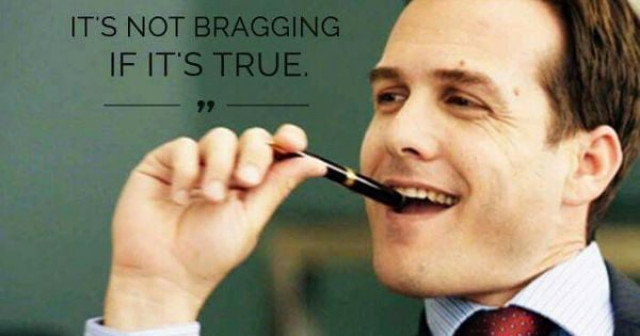Men are often their own favourite experts on any given subject: study
Ladies, you are going to enjoy reading this! As for the gents, deep down you know you can't argue against it

An interesting new research qualifies the notion that men are far more likely to back their arguments with reference to a 'higher authority' -- themselves.
This narcissistic phenomenon like everywhere else, is no alien to academia and 'citations' in particular. Citations in academic work are a marker of authority and influence in one's respective field. It is common practice to give citations for various assertions when writing academic and research papers. However, 'who' one cites, and 'how often' is a different story altogether.
As such, this research claims, "Over the years between 1779-2011, men cite their own papers 56% more than women do." And in recent decades, men have stepped up their self-citation game relative to women: "In the last two decades of our data, men self-cite 70% more than women."
Molly M King and her colleagues at Stanford University, the University of Washington and New York University ventured on this formidable task by immersing in a massive database of academic work: 1.5 million research papers in JSTOR, a digital library of academic books and papers published between 1779 and 2011.
They found a huge difference in self-citation patterns (or citation counts) between men and women that held true across every major academic field involving biology, sociology, philosophy and law. "The men authors of this paper cite themselves at nearly three times the average rate of the women authors."
The researchers offer two broad explanations for why men are more likely to cite themselves in their own work. First, men generally have a higher opinion of their own abilities than women. And secondly, they face fewer social penalties for self-promotion. "Gendered perceptions of self-promotion likely influence perceptions of self-citation, which could be viewed as a form of self-promotion in the academic workplace," they write.
On a different note, the self-citation disparity also has a real-world impact on female academics' careers. Academics are more likely to cite papers that are already well-cited, so citing yourself means more citations from others, and more citations means better career-advancement opportunities. This phenomenon contributes to women's continued under-representation on college and university faculties. Universities often factor in citation counts when making decisions about hiring, tenure and pay. Women as of 2013, represent fewer than a quarter of university faculty members.
There's also the simple fact that men tend to publish more, particularly early on in their careers, at a time when many female academics might be grappling with the challenges of balancing career with maternity leave. If you have published more papers, you have more chances for citing your own work.
This article originally appeared on Washington Post.


















COMMENTS
Comments are moderated and generally will be posted if they are on-topic and not abusive.
For more information, please see our Comments FAQ